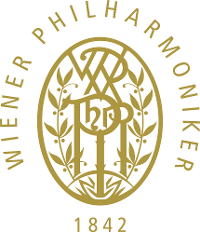The Vienna Philharmonic is a goodwill ambassador for the work of IIASA. The partnership brings together music and science for the broader good of humanity.
 © WPH
© WPH
Music lets the spirit soar into realms unfettered by the objective and self-imposed limitations of the mind. In these spaces, the imagination has free rein to explore random—even seemingly paradoxical—associations and to draw from them ideas and impulses that may be a catalyst for innovative concepts and pathways.
Music and science have much in common. Science, too, seeks to transcend the materialistic world, to grasp the threads and traces of all that is mysterious and elusive, and to understand them at an intensely intellectual and emotional level.
Together music and science have transformative power: they are able to depict the world as it is and to imagine the world as it could be.
One of the Vienna Philharmonic's stated missions is to communicate the humanitarian message of music into the daily lives and consciousness of its listeners. One way in which it does this is by raising awareness of the work of IIASA, a scientific research institute established over 50 years ago in the orchestra's own home country of Austria.
Today, with the support of its 22 National Member Organizations from Africa, the Americas, Asia, and Europe, IIASA is a leader and innovator in identifying solutions to planetary challenges like hunger, air pollution, global warming, and human security and development.
IIASA was established in October 1972, when representatives of the Soviet Union, the United States, and 10 other countries from the Eastern and Western blocs met in London to sign the charter establishing the International Institute for Applied Systems Analysis (IIASA). This new model of Cold War cooperation was the culmination of six years' effort, driven forward by US President Lyndon B. Johnson and USSR Premier Alexei Kosygin.
Austria, a country with considerable postwar experience as a diplomatic conduit between East and West, agreed to host IIASA at Schloss Laxenburg, 15 km south of Vienna, a magnificent Baroque castle that was once the favored summer retreat of the imperial Habsburg dynasty.
Thus, to Schloss Laxenburg, where in the 18th century Empress Maria Theresia held court to aristocrats and high society, came a steady stream of scientists from opposite sides of the Iron Curtain to search together for answers to the "big questions" besetting the planet. They were physicists, chemists, mathematicians, computer scientists, hydrologists, ecologists, demographers, engineers, economists—all of them leading scientists in their home countries. And they were among the first in the world to conduct research from a holistic, "systems" perspective.
By the end of the Cold War, IIASA had become one of a small group of institutions worldwide to have transformed scientific thinking, and its influence and network of partnerships were widespread.
As the barriers collapsed between Eastern and Western Europe, IIASA's value as an independent, reliable policy advocate on international scientific matters was firmly established. Now, 200 scientists from 50 countries conduct research at Schloss Laxenburg into the human and environmental aspects of global change: energy and climate change; food and water; and poverty and equity. IIASA works with a further 300 research partners worldwide, including academic, governmental, and private institutions, tackling major human and environmental problems from a national, regional, and international perspective.
Austria can be justifiably proud of the scientific research institute to which it gave a home four decades ago. Today, the Kaisergang, where Emperor Franz Josef strolled with courtiers to discuss urgent affairs of state, connects IIASA scientists analyzing deforestation, food production, and how to optimize land use in regions facing extreme weather events, natural disasters, and water shortages.
In the apartments where, in 1858, Empress Elizabeth—Sissi—gave birth to her ill-fated only son Crown Prince Rudolf, policies are discussed and formulated that link education to better maternal and child health, poverty alleviation, and sustainable economic growth.
Under the massive chandeliers that still hang in the imperial rooms, senior scientists discuss electricity production from solar panels in the Sahara Desert and how to bring clean energy to 3 billion people in our world still forced to cook their food using wood and kerosene.
And while in summers gone by the Schloss may have resonated to the strains of a Haydn symphony, these days it is more likely to reverberate to the footsteps of the 50+ talented young researchers from developed and developing countries learning new skills in IIASA’s flagship Young Scientists Summer Program.
It is heartening to think that from a seed of cooperation planted in a neutral country of Central Europe at a time of great global tensions, IIASA—through the support of its host country, Austria, and its other National Member Organizations—has become an influential and global body that works not for profit or power, but for the benefit and well-being of the whole of humanity.
IIASA looks forward with pride to collaborating with the great Vienna Philharmonic in the years to come.